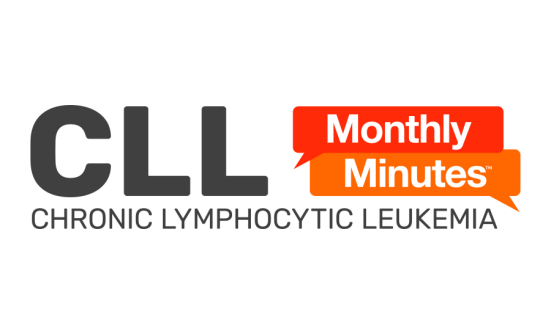Chronic lymphocytic leukemia (CLL) is the most common type of leukemia in adults of the Western world.1-3 Because patients with CLL often do not have any symptoms when they are first diagnosed, many will not receive immediate treatment and will instead be monitored through a “watch-and-wait” approach.2,3 In general, patients only begin treatment when they have signs that the disease is progressing, or in a more active state, with symptoms that commonly include fatigue, weight loss, bleeding, and recurrent infections.2,3
Symptoms of CLL, treatment-related side effects, and simply the awareness of living with an incurable but often manageable disease can have a powerful effect on a patient’s quality of life (QOL).2 A study of 144 patients with CLL, who were asked about QOL problems for approximately 3 years, found that 62% reported having substantial concerns of their future health, 50% reported feeling that they did not have enough energy, and 48% reported night sweats.2 Notably this study showed that although patients in the watch-and-wait phase had limited impact on their QOL, it was larger than typically assumed and included fatigue and sleeping problems.2
For patients with CLL, it is important that they share any changes in their QOL with their healthcare team. The presence of new symptoms could mean that it is time to begin or change treatment.4 Although recognizing that the disease may be progressing can be frightening, it is important to seek treatment promptly to keep the cancer under control.4 Symptoms that doctors are typically looking for include fever without signs of infection, night sweats that are drenching, weight loss >10% over 6 months, pain in the upper left side of the abdomen, feeling full quickly, and enlargement of lymph nodes.5 Patients with CLL should also discuss with their doctor if there are other signs of disease progression that they should be monitoring.5
Healthcare teams can also provide guidance on how to limit any QOL changes that a patient is experiencing. Fatigue, for instance, can often be minimized through regular exercise, developing good sleep habits, and maintaining a healthy diet.5 Impacts to mental health, such as stress, anxiety, and depression, may be inevitable but can also often be effectively managed by discussing them with one’s healthcare team.4 In addition, some patients have reported a better outlook after participating in online or in-person support groups.
In many cases, QOL impacts due to treatment can be minimized by discussing them before they start. Patients can initiate these conversations by asking questions, such as “What side effects am I likely to experience, and how long will they last?”5 Other good questions for all CLL patients to ask their healthcare team include: “How can I contact the office if there’s a problem earlier than a scheduled visit?” and “Can you recommend any supportive oncology services or support groups?”5 Many clinics offer group exercise programs, massage, acupuncture, or other services to help minimize the effects of CLL on their patients’ QOL.5
References
- American Cancer Society. What is chronic lymphocytic leukemia? Published May 10, 2018. www.cancer.org/cancer/chronic-lymphocytic-leukemia/about/what-is-cll.html. Accessed May 14, 2021.
- Holtzer-Goor KM, Schaafsma MR, Joosten P, et al. Quality of life of patients with chronic lymphocytic leukaemia in the Netherlands: results of a longitudinal multicentre study. Qual Life Res. 2015;24:2895-2906.
- Sharma S, Rai KR. Chronic lymphocytic leukemia (CLL) treatment: so many choices, such great options. Cancer. 2019;125:1432-1440.
- Toren AL. 3 things to tell your doctor about your CLL leukemia. Published January 13, 2020. www.healthgrades.com/right-care/leukemia/3-things-to-tell-your-doctor-about-your-cll-leukemia. Accessed May 14, 2021.
- Stephens DM. CancerCare Connect education workshop: update on chronic lymphocytic leukemia (CLL). https://edge.media-server.com/mmc/p/vngzdx5x. Accessed May 14, 2021.















